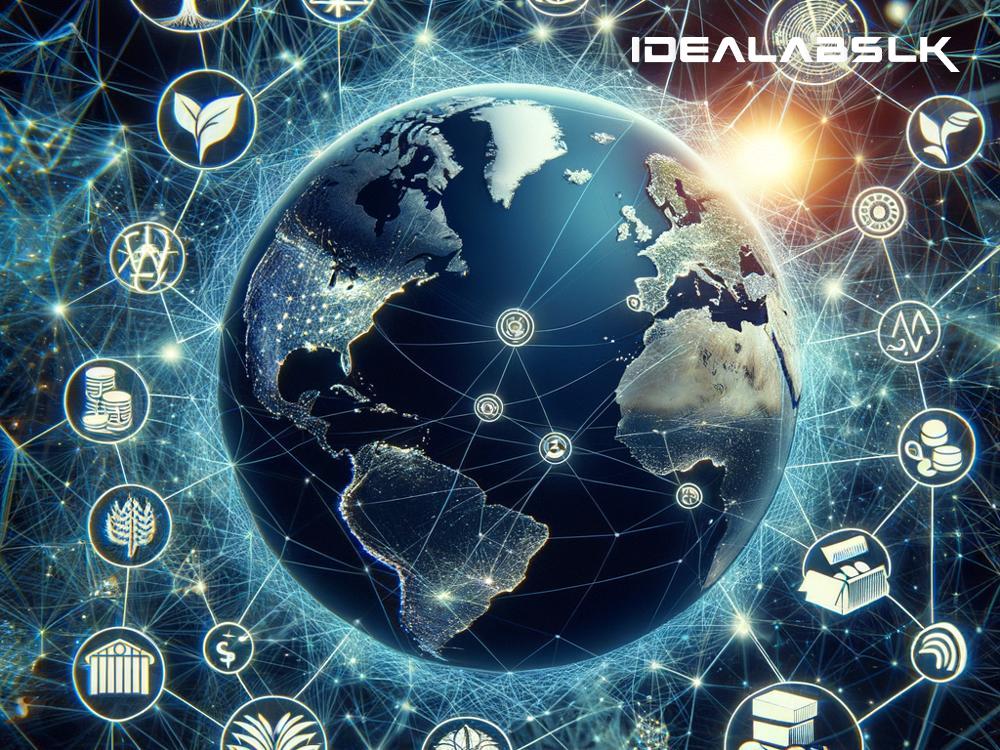How AI and Blockchain Are Changing the Game in Food Import-Export
In today’s fast-paced world, our dinner plates are as global as our news feeds. The journey of getting, say, a Peruvian avocado or a Thai rice variety onto your kitchen table is complex, involving numerous steps and players across continents. However, the traditional ways of managing these processes in the food import-export industry are facing a makeover, thanks to two revolutionary technologies: Artificial Intelligence (AI) and Blockchain. Let's break down how these innovations are streamlining operations, ensuring food safety, and enhancing transparency in the food industry.
Simplifying Complexities with AI
The import-export chain of food products is a maze of sourcing, regulation compliance, logistics, and sales. It's like trying to navigate through a dense forest with a blindfold. Here's where AI steps in as your pathfinder. Through its ability to analyze vast amounts of data at lightning speeds, AI helps businesses make informed decisions faster.
For instance, AI algorithms can predict demand for certain food products in different markets, helping suppliers plan their production and distribution accordingly. This cuts down on wastage and ensures that your favorite avocado toast remains on the menu without interruption. Furthermore, in the world of constantly fluctuating regulations and tariffs, AI tools can keep track of these changes in real-time, thereby simplifying compliance for exporters and importers alike.
Traceability and Transparency through Blockchain
Imagine buying a pack of coffee and being able to know exactly where the beans came from, how they were grown, and the journey they took to reach your cup. Blockchain makes this possible. At its core, Blockchain provides a tamper-proof, decentralized ledger system. In the context of food import-export, this means every step of a product’s journey, from farm to fork, can be recorded and verified.
This has profound implications for food safety. In the event of a food contamination issue, authorities can quickly trace the problem to its source, facilitating swift action to protect consumers. Moreover, this traceability fosters consumer trust. Knowing the origin and history of their food makes consumers more confident about their purchase decisions, enhancing brand loyalty.
Combating Fraud and Ensuring Fair Trade
The import-export business, like any other, isn't free from fraudulent activities. From mislabelling to selling non-organic produce as organic, these dishonest practices harm consumers and undercut honest businesses. AI comes to the rescue by analyzing patterns and flagging anomalies that could indicate fraud, making it easier for authorities and businesses to take corrective action.
In parallel, Blockchain's transparent nature ensures that claims about a product’s origin or organic status, for instance, can be verified by anyone. This transparency is also a boon for fair trade practices. Producers, especially in developing countries, often get the short end of the stick in global trade negotiations. Blockchain can ensure that ethical practices are followed through every step of the supply chain, guaranteeing fair compensation for producers.
Streamlining Logistics and Reducing Costs
The logistical ballet of shipping food products across borders is fraught with inefficiencies, from redundant paperwork to delays in customs. AI and Blockchain together can address these pain points. AI algorithms can optimize shipping routes and management, predicting and avoiding delays. At the same time, Blockchain technology can streamline paperwork and customs declarations through smart contracts - self-executing contracts with the terms directly written into code.
Moreover, the combination of these technologies can significantly reduce costs. By optimizing routes and reducing delays, fuel and storage costs go down. Similarly, the blockchain-driven reduction in paperwork and the elimination of fraud can lead to considerable savings for businesses.
Looking Ahead
As we look to the future, the synergy between AI and Blockchain in the food import-export industry promises even more exciting developments. From more sustainable practices through better resource management to personalized consumer experiences based on dietary preferences and sustainability values, the possibilities are vast.
However, for these benefits to fully materialize, challenges such as the digital divide and the need for global standards in technology implementation need to be addressed. Collaboration among stakeholders worldwide will be key to harnessing the full potential of AI and Blockchain in transforming the global food industry.
In essence, AI and Blockchain are not just transforming the food import-export industry; they're setting the table for a future where technology ensures food is safe, sustainable, and fairly traded, benefiting everyone from farmers to consumers. The journey from farm to fork has never been more transparent or efficient, heralding a new era in the global food industry.

